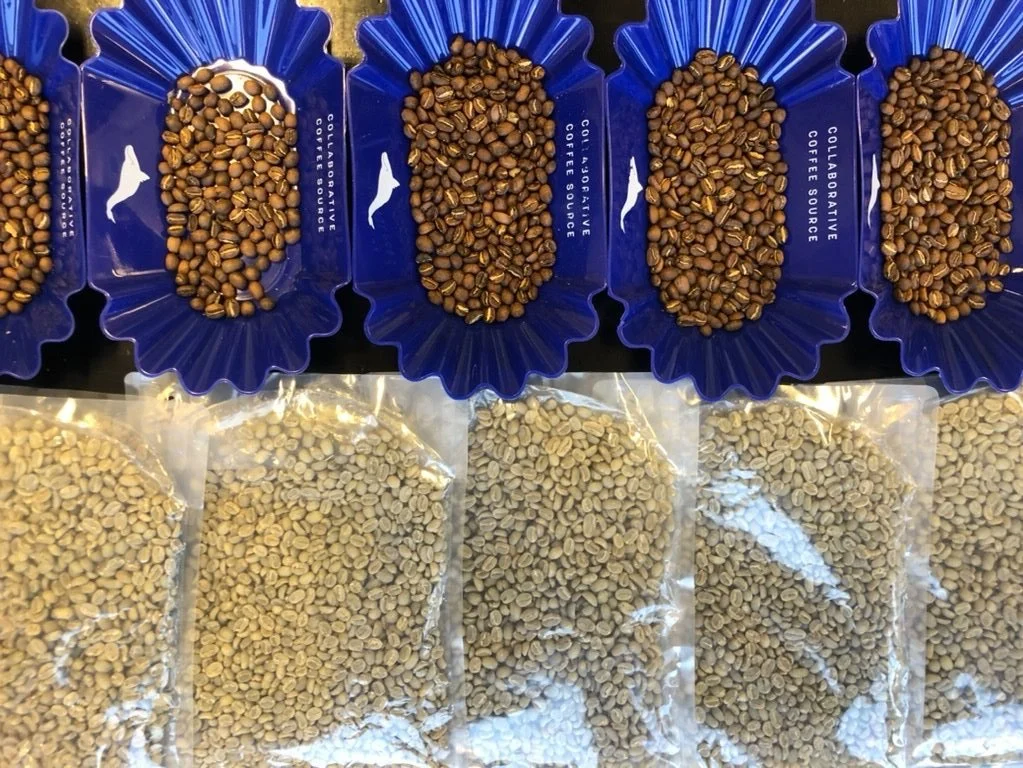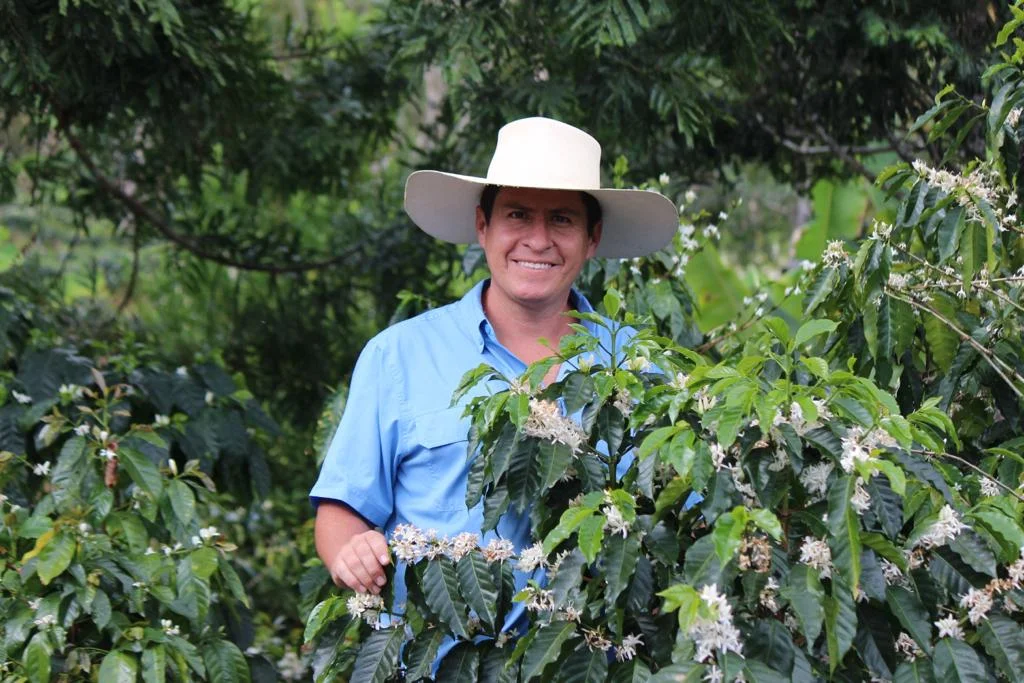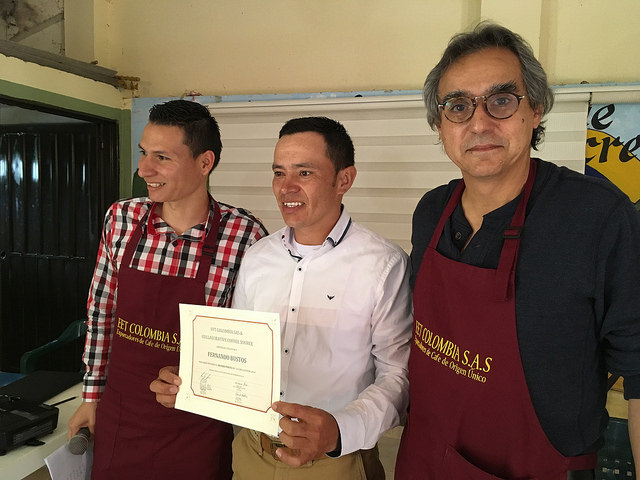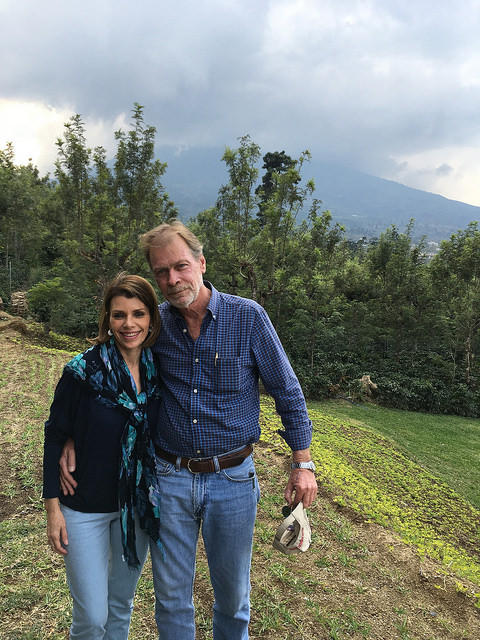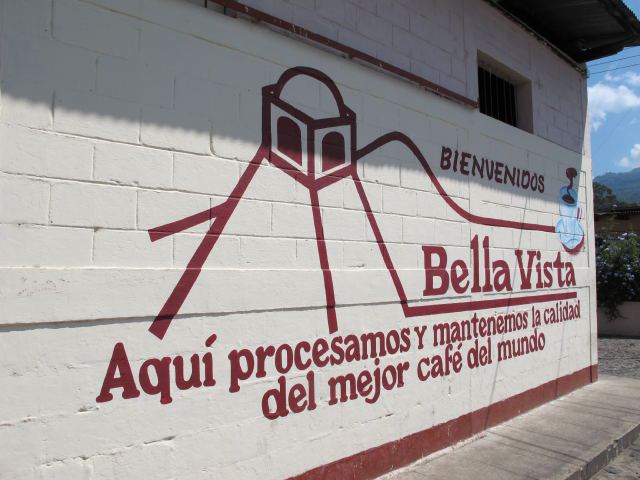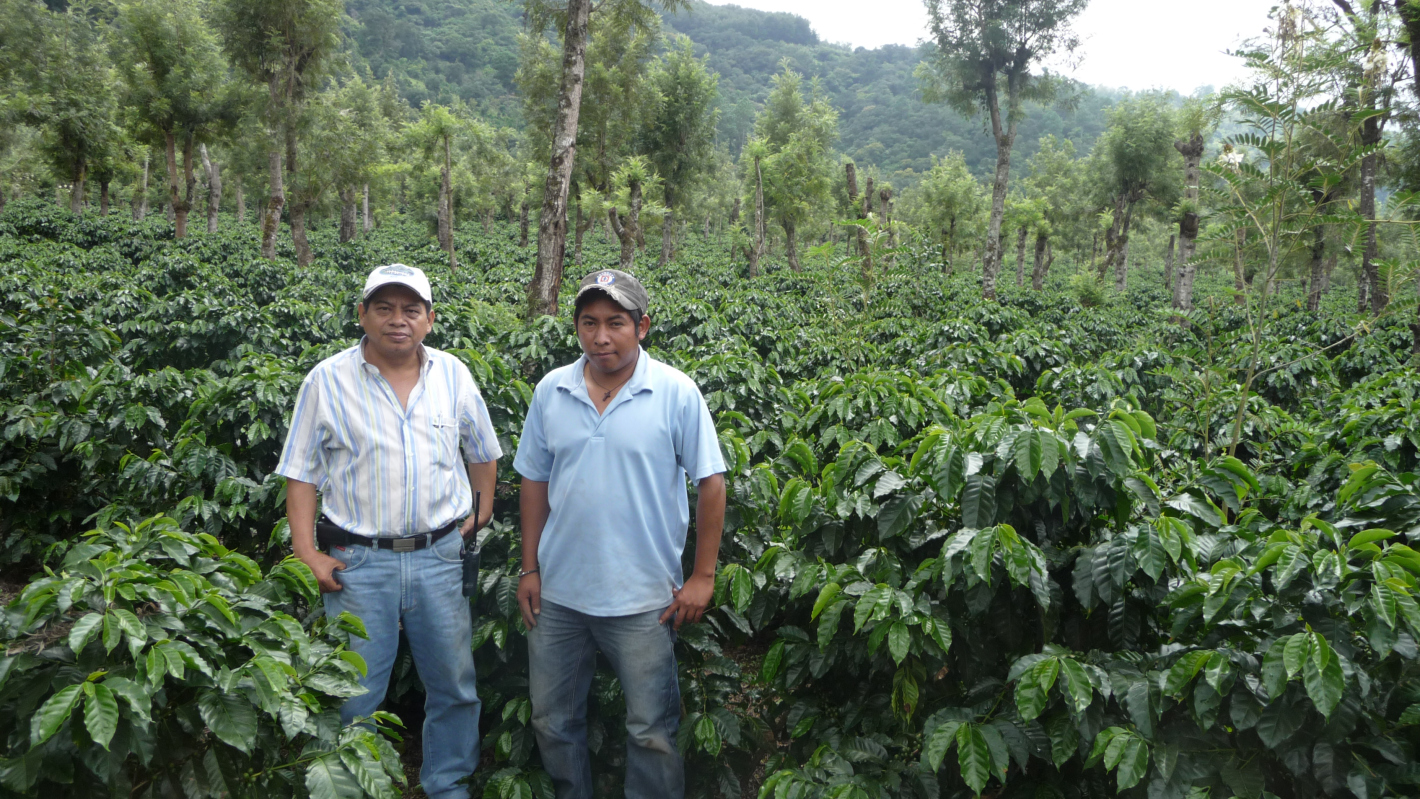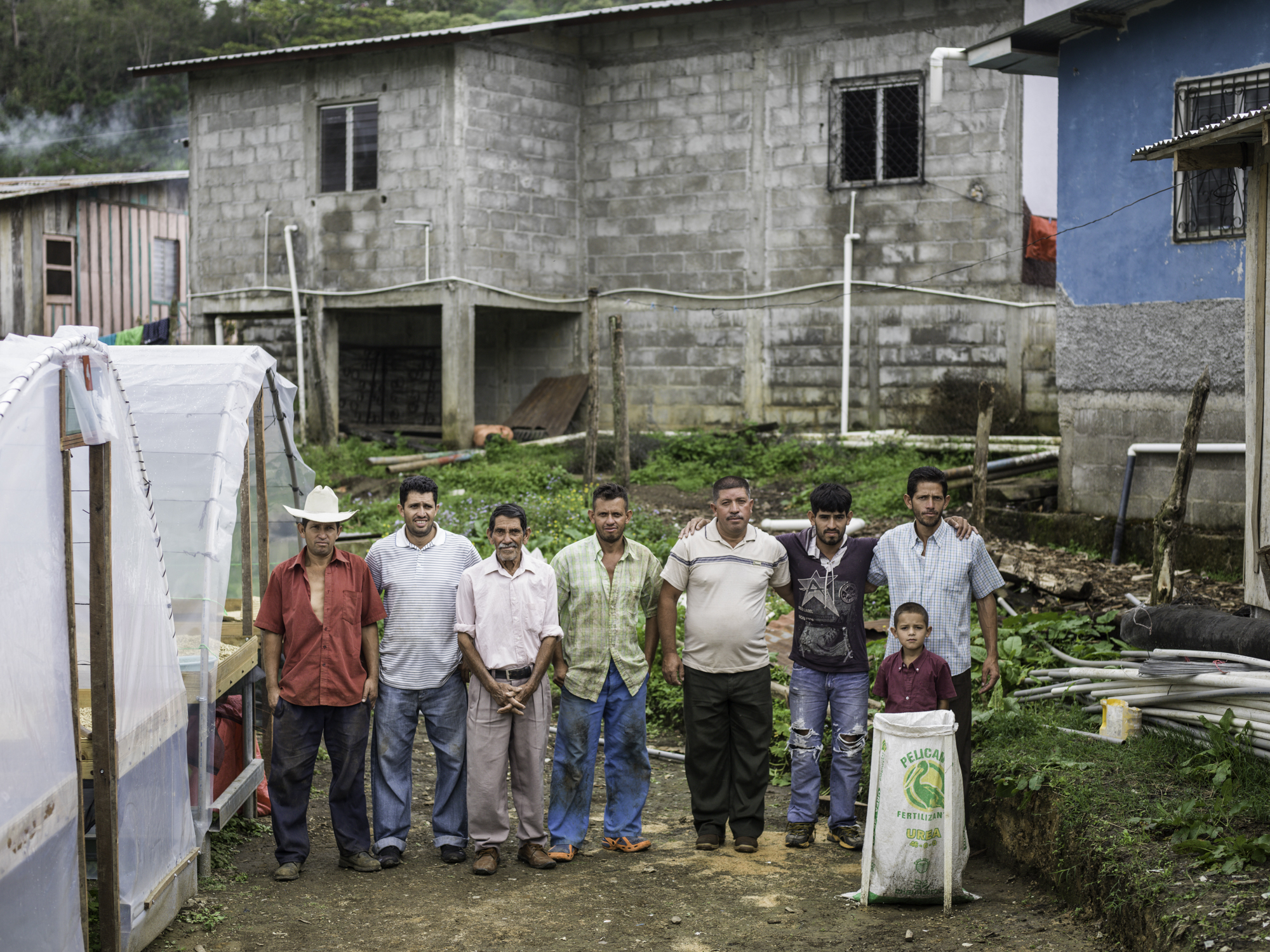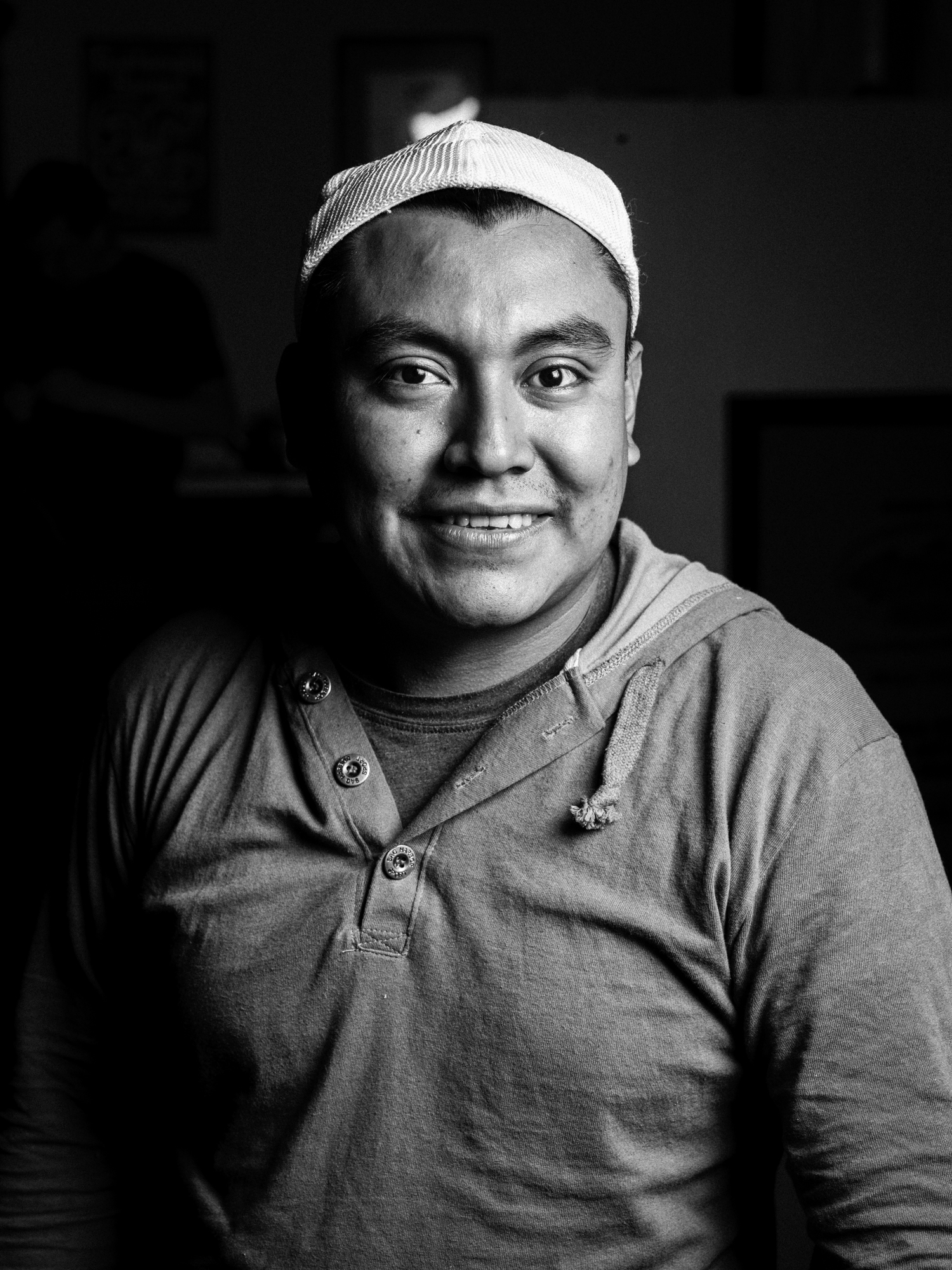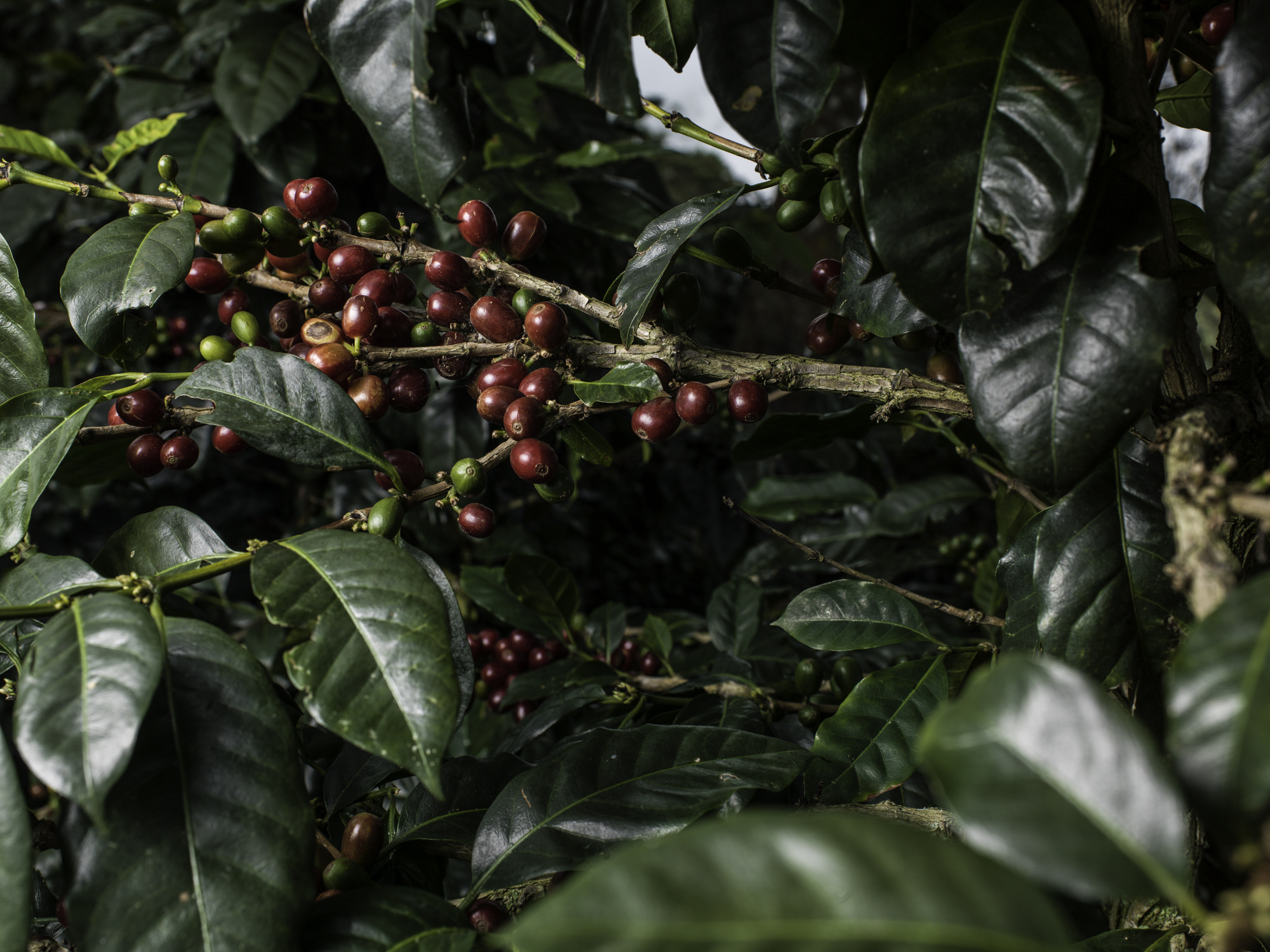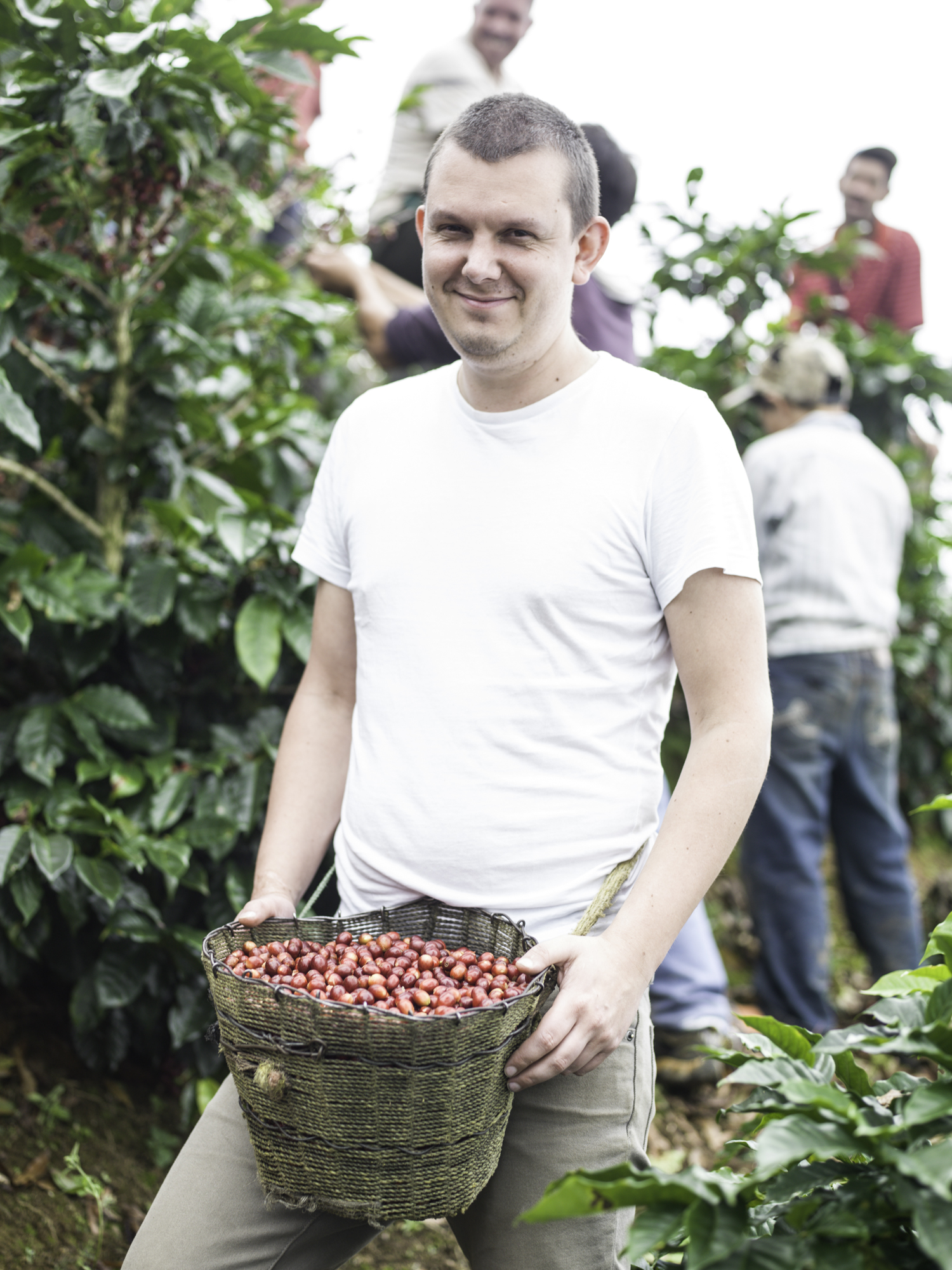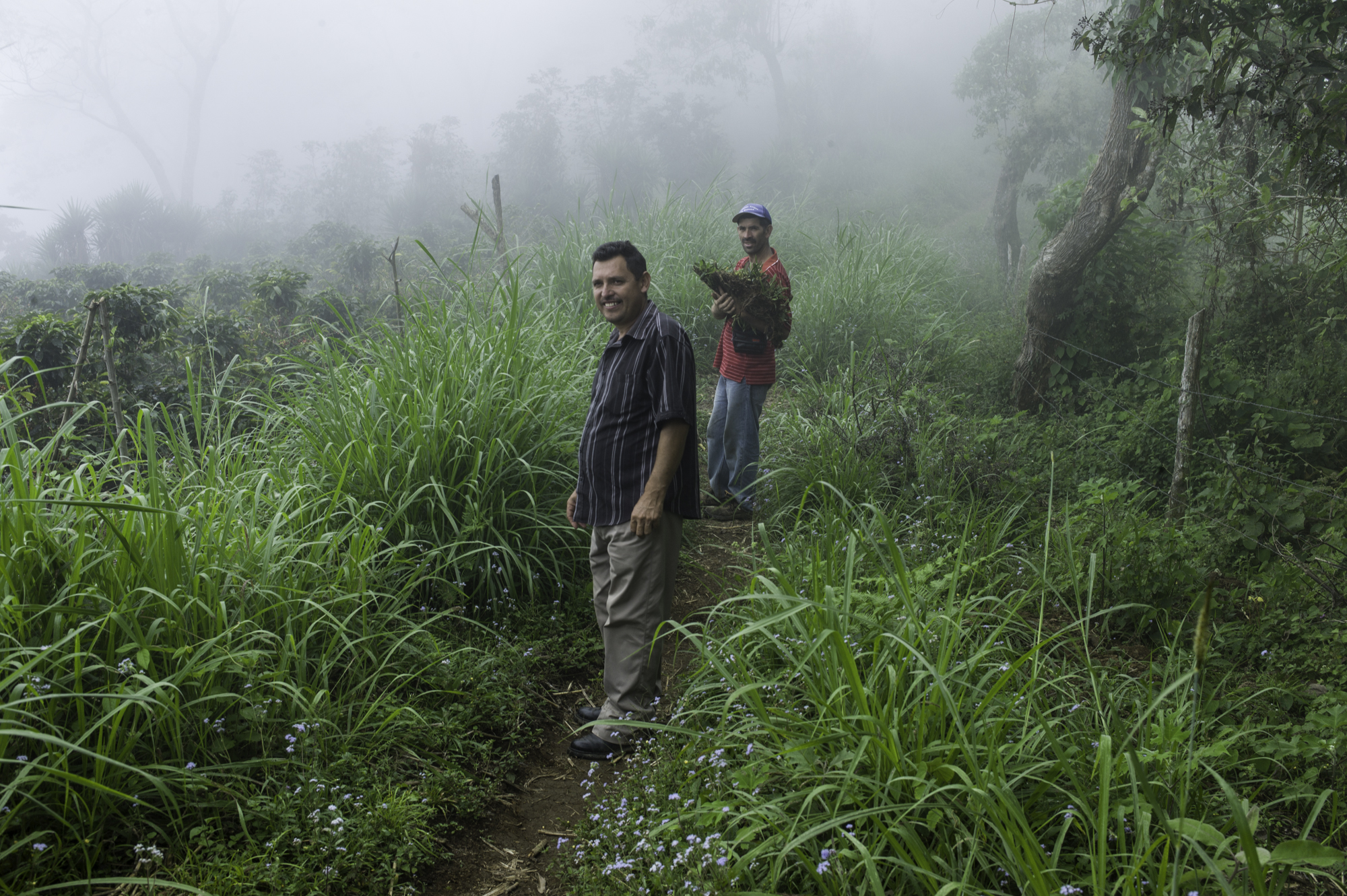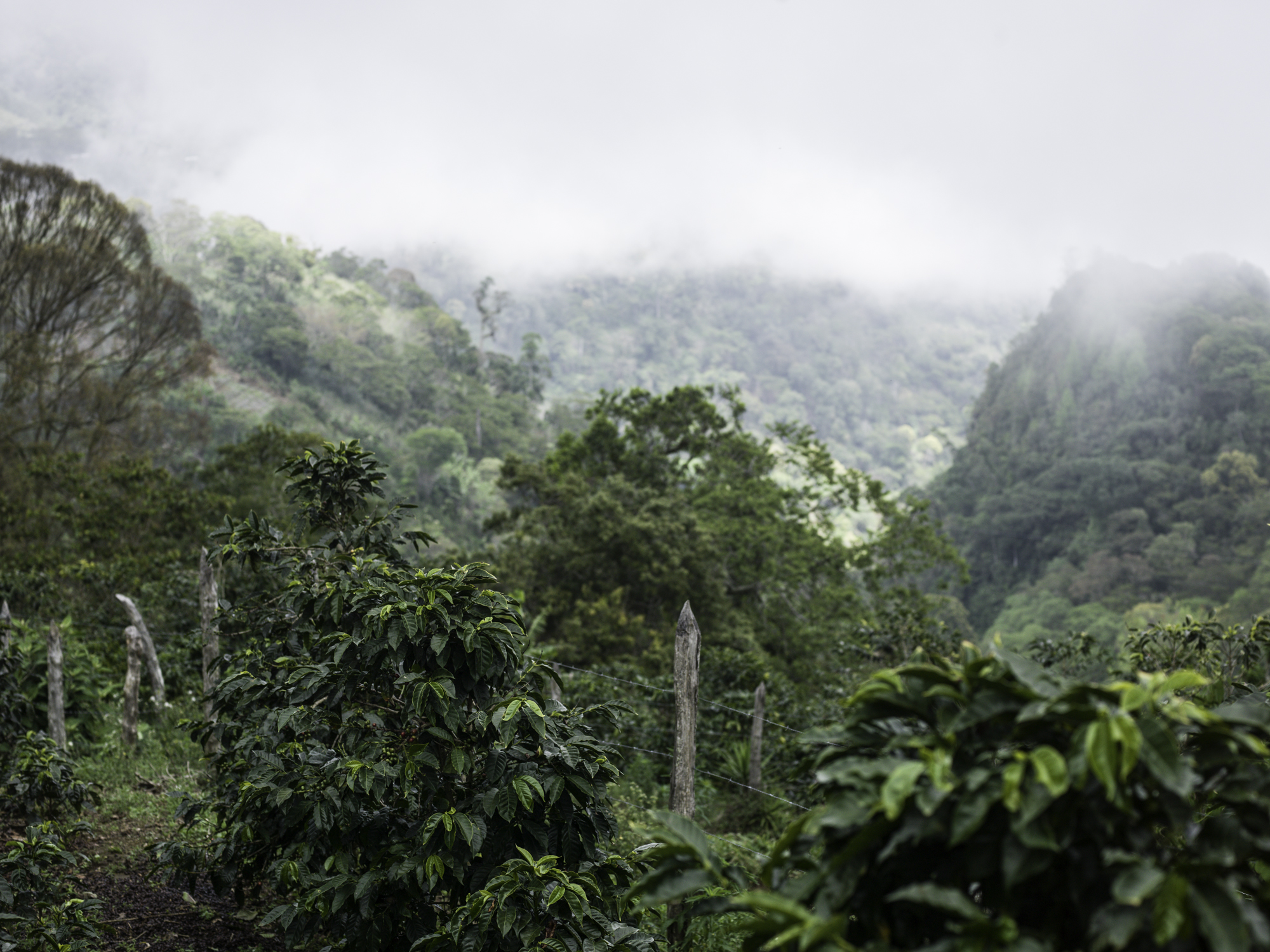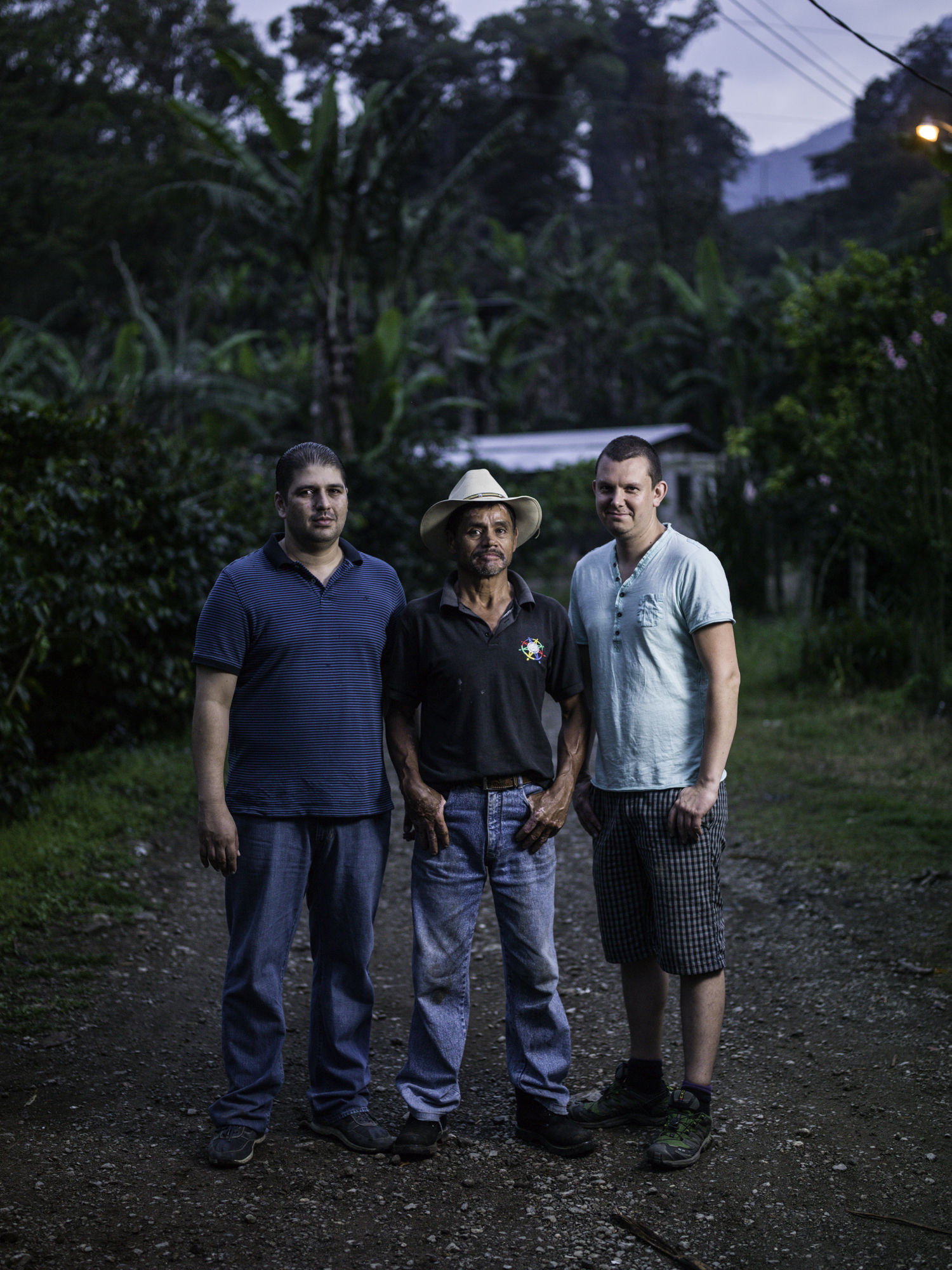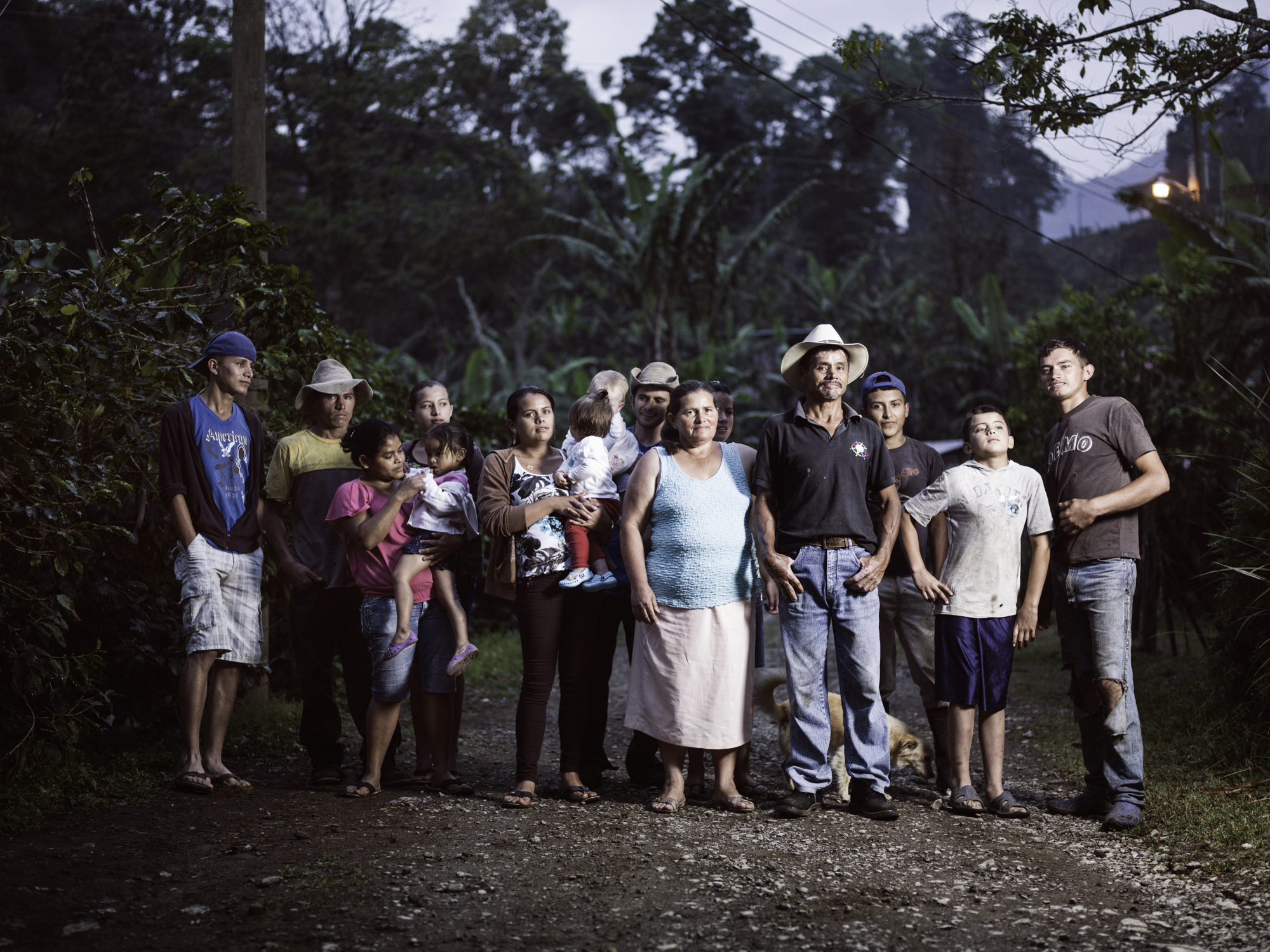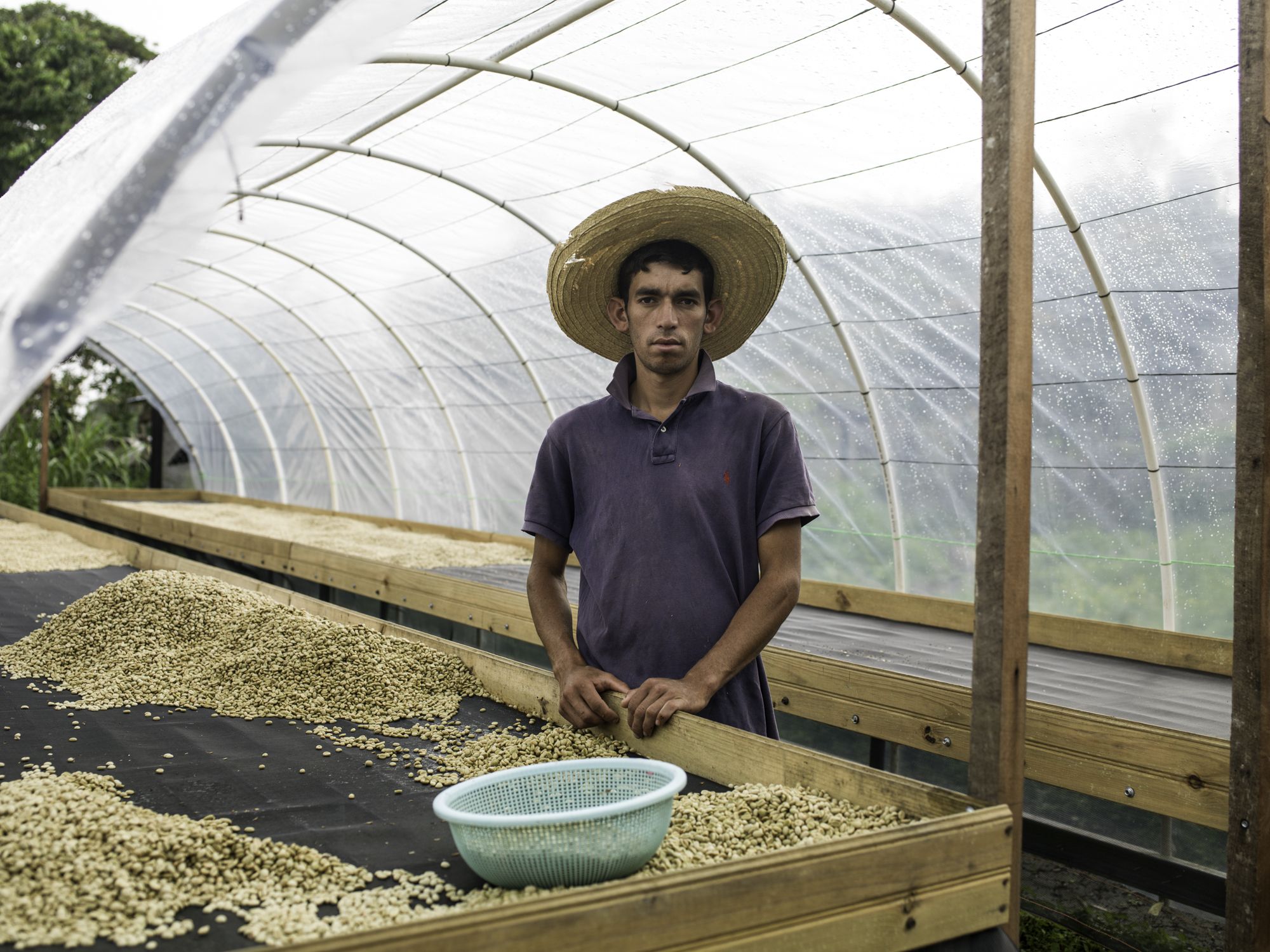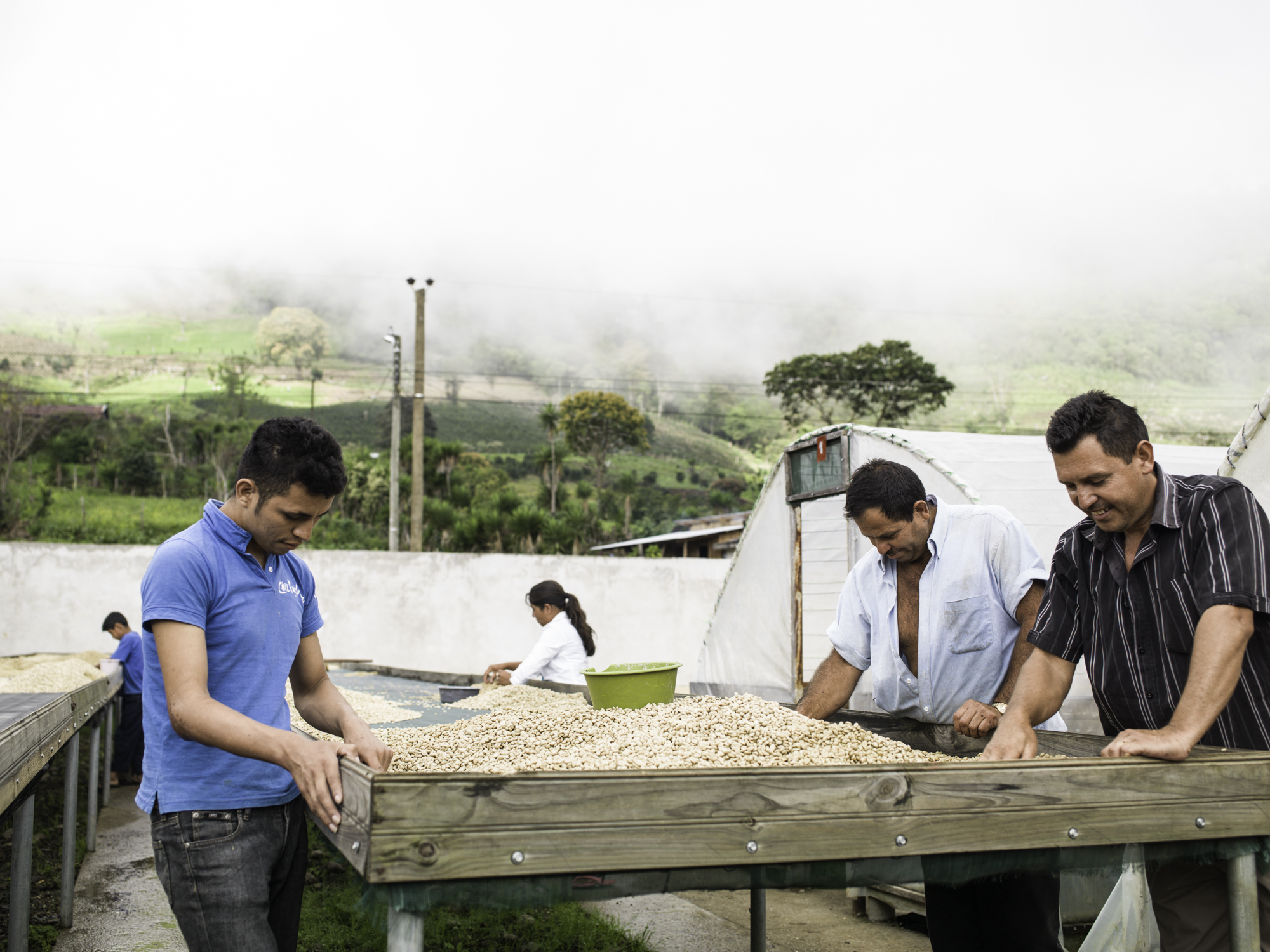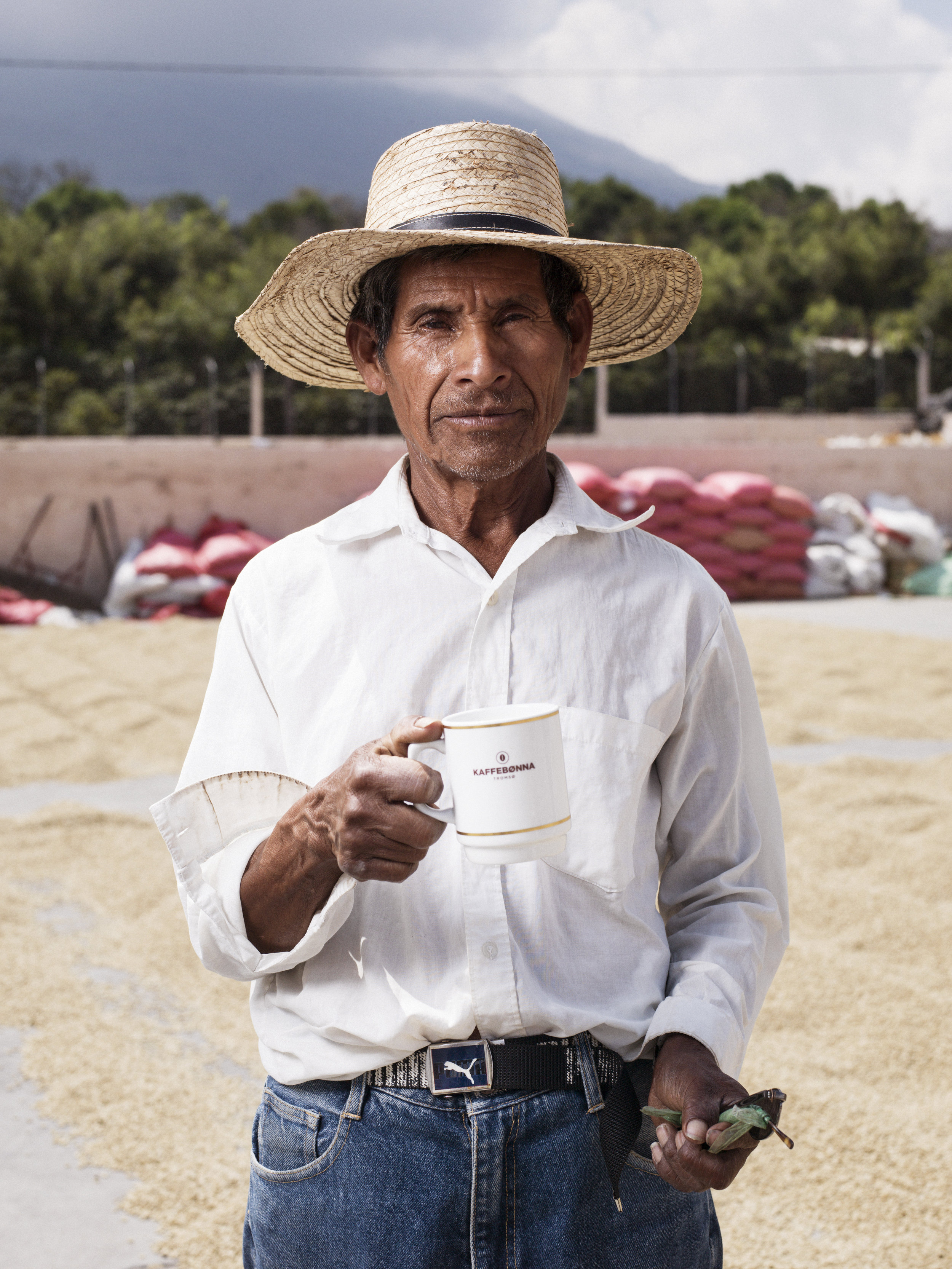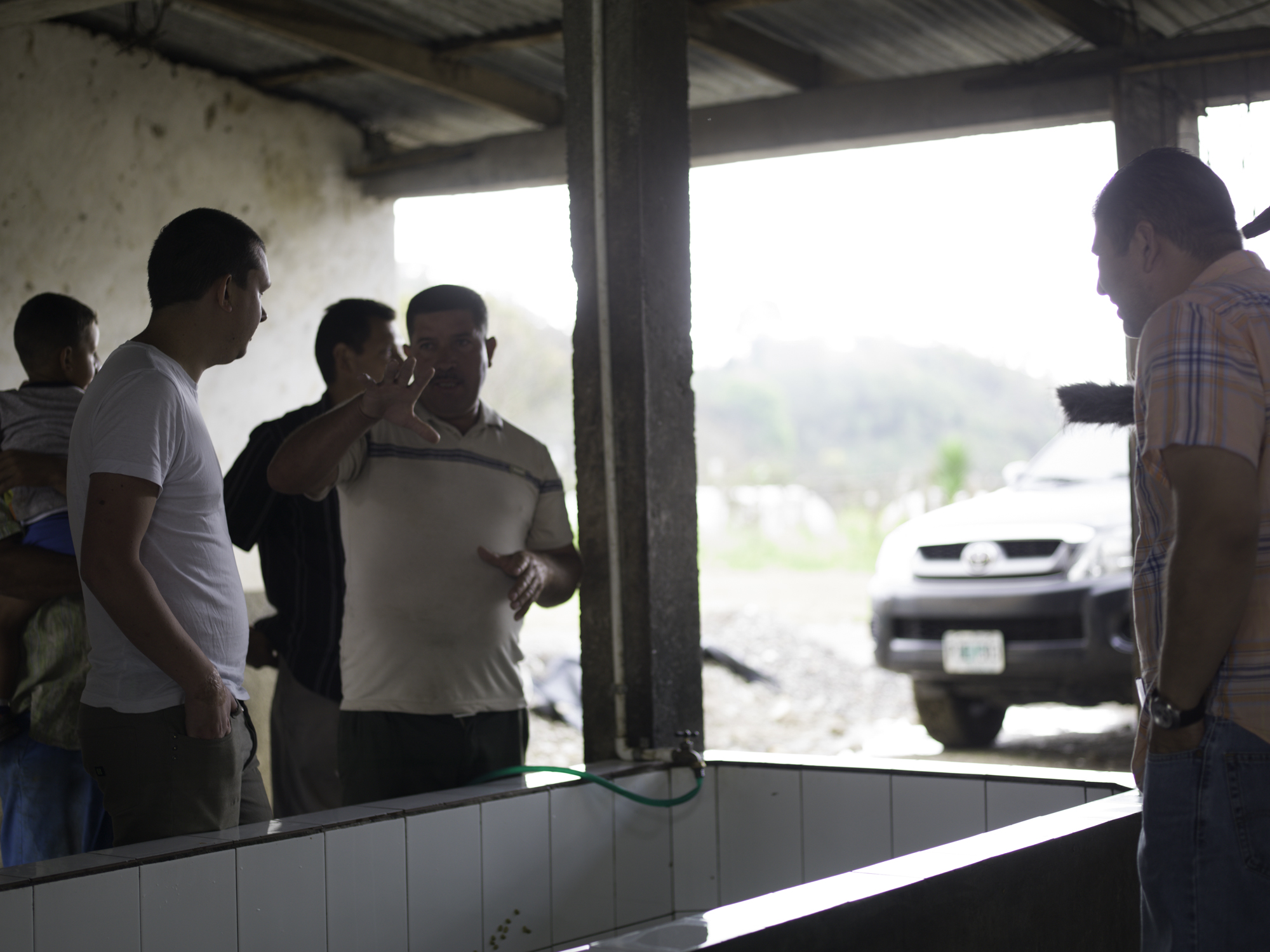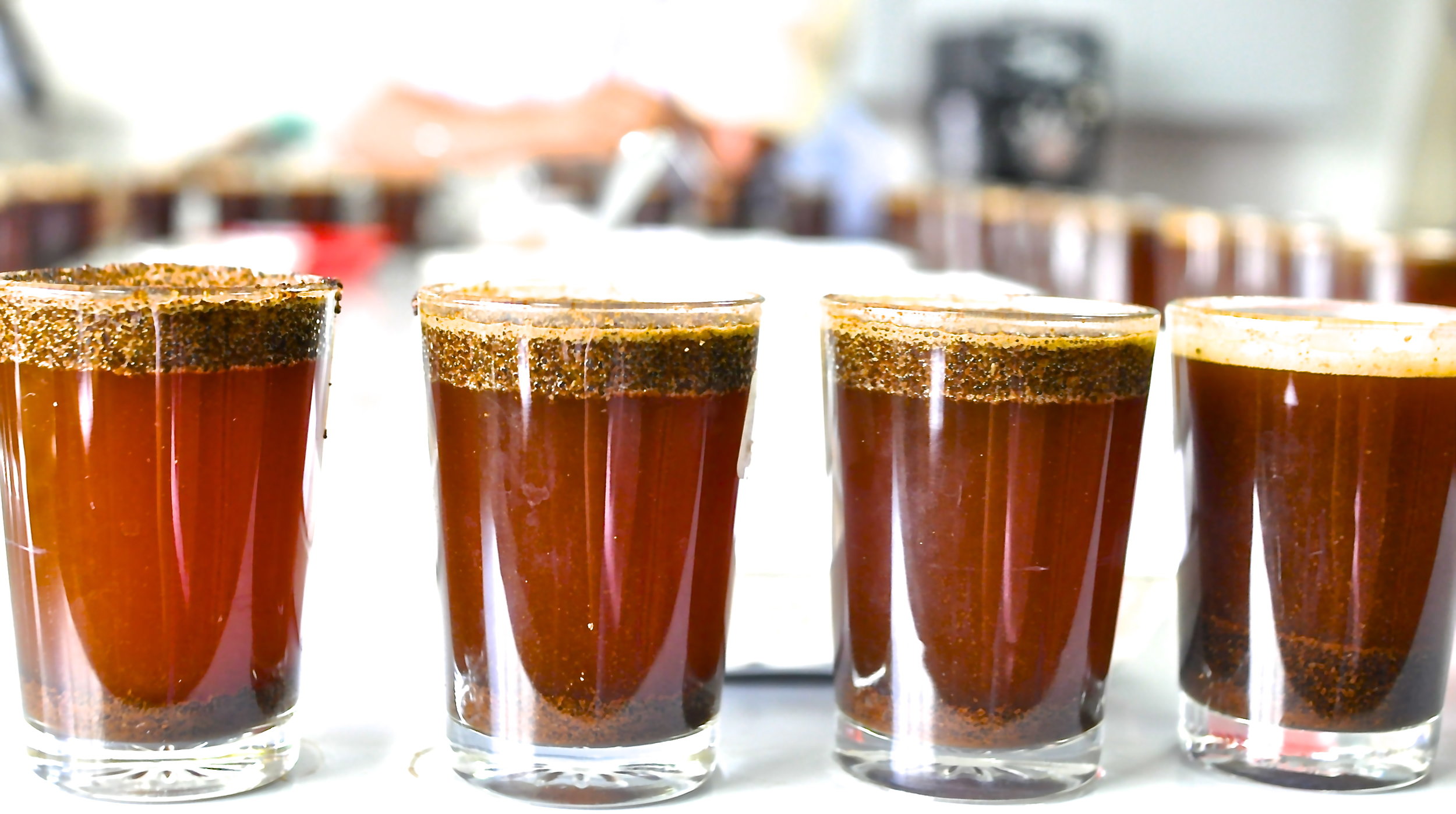Wet process
Washing - Cherries go into reception tank and floaters are separated out, then pumped into the depulper - After being depulped by a mechanical depulper, cherries are sorted in two ways: clean and those that still have fruit o The ones with fruit go to a separate channel to undergo a second depulping - Clean cherries are moved with recycled water over to fermentation tanks o If there happen to still be cherries with fruit, they are sent to another tank where they will most likely be processed as commercial grade - Dry fermentation for 14-15 hours - Clean water then used to rinse the parchment which is then moved to a mechanical washer and finally transported to the drying patios or beds.
Three types of drying methods. Dependent on quality:
- Green house with raised beds •
- Used for small lots (e.g. Hunapu). Do some honeys and naturals
- Temperature, moisture, humidity levels are monitored
- There are windows that can be opened to allow for more air flow when needed
- Mechanical dryers used for biggest/commercial lots
- Stay in the dryer for 24 hours @ below 50C
- Then dried for five days on the patio
- Patio •
- Most volume dried here
- 12-16 days
- Tube test in the middle of coffee lots to figure out whether coffee is dry enough to be measured for 11% moisture content. If it sticks to the tube, it still needs drying. If it doesn’t, moisture content reading is taken.
Post-drying - Parchment is packed in grain pro and rests for 30 days - At the dry mill, there are three different mechanical sorters that grade by A (biggest), B and C (smallest) o This process is repeated at least seven times to ensure even grading - Finally, the coffee is deparched and packaged.
Other Data
Number of people employed at farm: 5 permanent; 15-20 pickers. A law was recently passed in Guatemala that requires employers to register workers as employees and this provides them with government social and healthcare benefits that they didn’t previously have access to.
Pickers’ wage: 50-70 GTQ/45kg.
About the farmer & the farm’s management
Lucía Zelaya comes from both a well-established and long-standing coffee producing family. She is both a cousin of Luis Pedro Zelaya and is herself a 4th generation producer. Her husband, Ronny, also comes from coffee producing heritage and owns another separate coffee farm, manages yet another, on top of overseeing the management of La Soledad.
It is in part due to Ronny’s farming principles that La Soledad maintains a strict and aggressive pruning regimen of removing 20-30% of the farm’s branches at the end of each year, to combat disease, make coffee picking easier for the women and ensure efficient production year after year. The pruning program is part of a broader integrated farm management program that has seen a dramatic decrease of reliance on chemical inputs on the farm. The goal is to decrease chemical inputs by 80% in the longer-term through the implementation of this program. It was introduced to Ronny by a sweet pepper producer who has successfully decreased his chemical inputs to 10% and is one of the best sweet pepper producers in Latin America (based on a balance of quality & volume measures).
Though the couple is happy and motivated to continue coffee farming, they cite profitability as the farm’s biggest challenge. Land prices in the area are quite high and climbing, so balancing their wish to continue the coffee legacy of their family with the realities of coffee market instability keeps them revisiting the question of coffee’s viability every once in a while.
About Bella Vista & Zelcafé
Background
Luis Pedro Zelaya Zamora (LPZZ) is the fourth generation in his family to be working in the coffee business. The Zelaya family’s first farm was Carmona, followed by Bella Vista, which where the wet, dry mill facilities, and Zelcafé staff offices were later built and are currently located.
For many years, the family’s business focus was on commercial coffee production and export but in 2000, LPZZ began developing and changing Zelcafé’s focus into specialty coffee/microlots, with the support of some early clients. Over time Zelcafé has been able to successfully transition the business into solely focusing on specialty coffee. For the Zelaya family, their coffee endeavours are not only about business; their aim is to provide a good basis for generations of their family and community to come. With this in mind, they are constantly looking for ways to provide jobs to as many families in their communities as possible, as well as supplying the best quality coffee they can to their clients.
Partnerships & Services
The family has worked with small producers in Antigua since they first started coffee farming. New relationships almost always come from introductions from families already working with the Zelaya family, ensuring close and stable partnerships. In addition to buying cherries from farms, Bella Vista also manages estate farms that owners don't want to sell but don't know how manage themselves.
The Bella Vista team take care of all the planning, execution and monitoring of the resources each farm they own or manage have: human, technical, financial, and knowledge/training. In the case of the small producers that they buy cherries from, the team not only buy cherries at a premium, they also provide technical assistance and the financing of inputs. Bella Vista is constantly looking to improve its agricultural activities to reduce chemicals to a minimum and in turn share their scientific knowledge with other farms.
Sustainability & the Future
Bella Vista continuously encourages its workers to get proper education and in special cases, finances education for some of them. The facility also often offers workshops on different topics. The Zelaya family farms all have C.A.F.E Practices implemented and in the coming years the family will try to implement a WaSH project at one of their biggest farms.
Other future plans include research on water treatment and the building of treatment plants and hopefully, the construction of another greenhouse.

